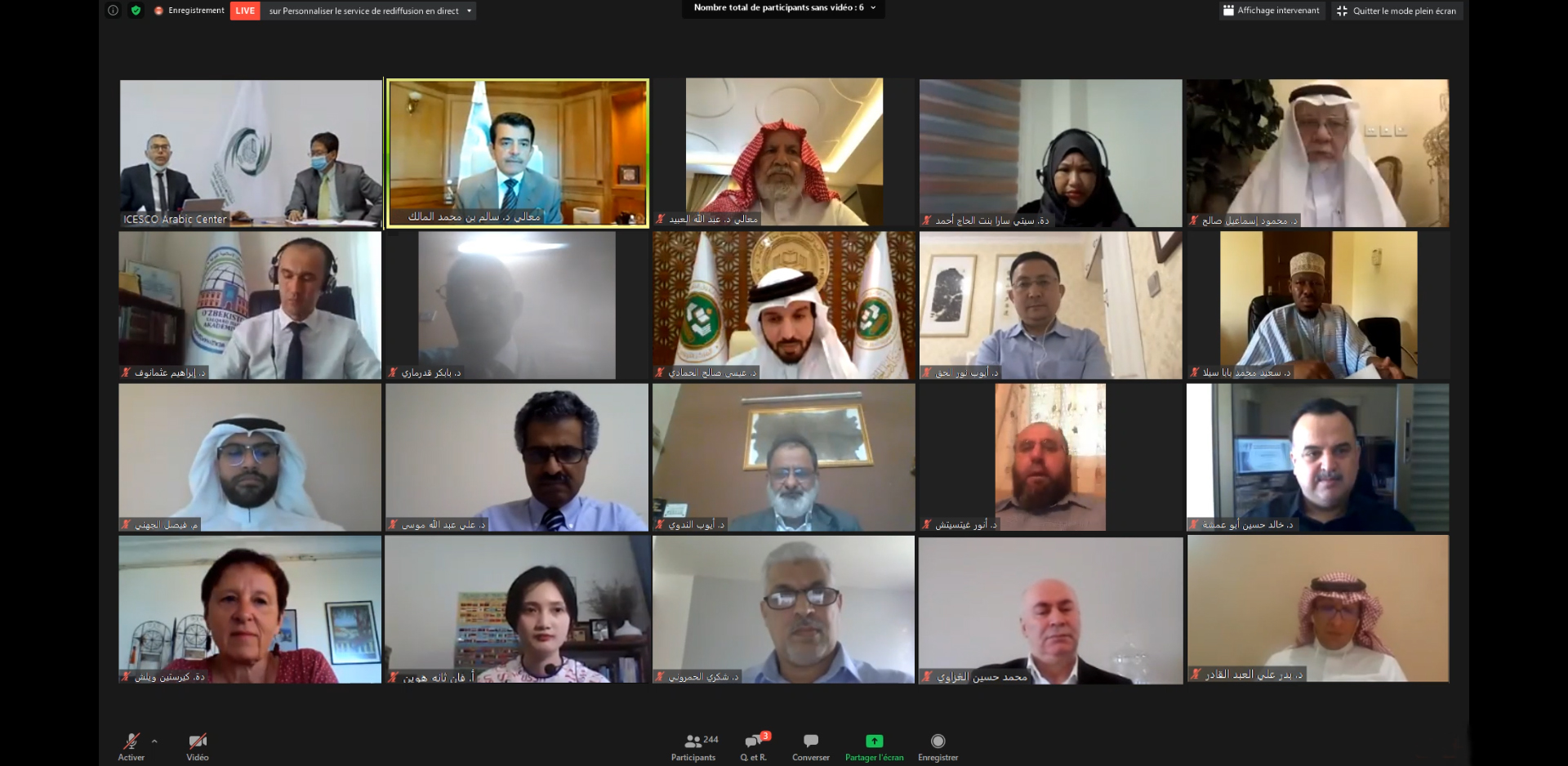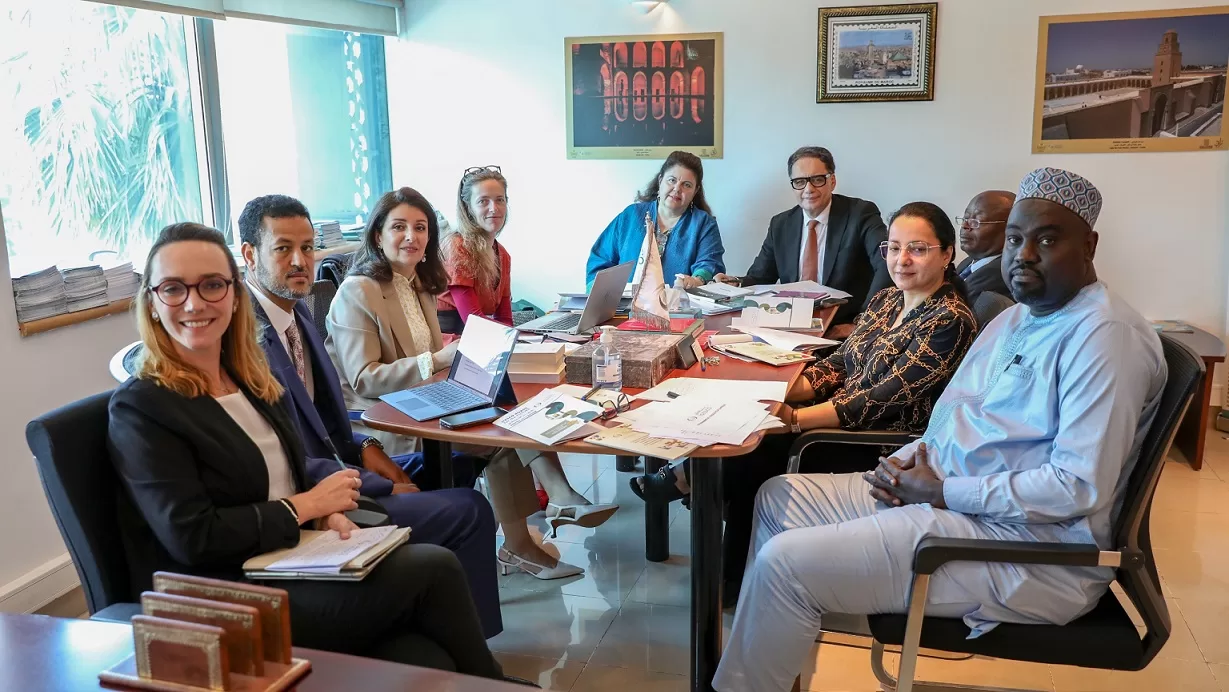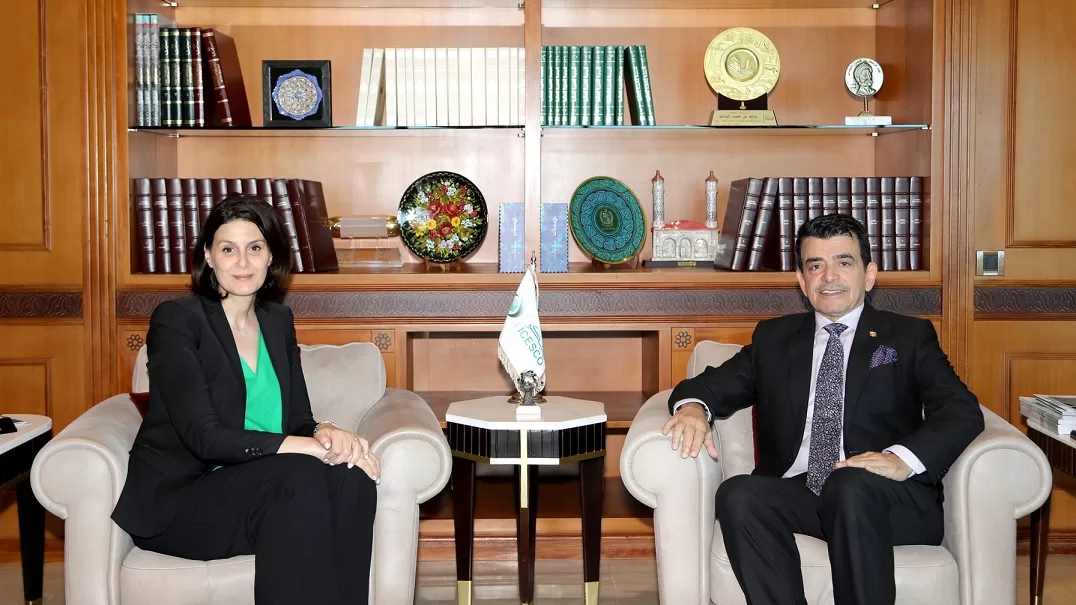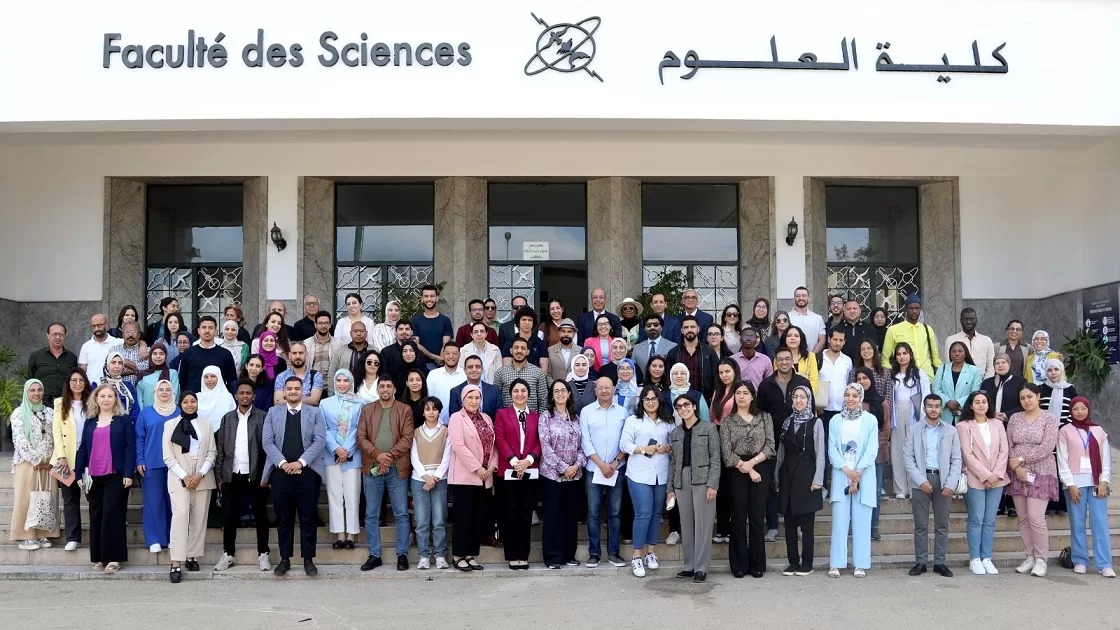
ICESCO Forum: development of the tools of teaching Arabic to non-Arabic speakers in post-COVID-19 is necessary

9 July 2020
The Virtual International Forum “Arabic Language for Non-Arabic Speakers beyond COVID-19: Renewing Strategies and Developing Tools and Methods”, held today by the Islamic World Educational, Scientific and Cultural Organization (ICESCO) with the attendance of senior regional and international specialized bodies and centers and a host of international experts and researchers, reaffirmed the need for joint action to empower Arabic language in the global language scene, amid a global situation which will likely witness decisive transformations in post-COVID-19 era.
At the opening session, Dr. Salim M. AlMalik, ICESCO Director-General, reaffirmed in his address that empowering the Arabic language at Islamic and international levels is a collective historical responsibility while warning that the world loses 25 languages each year and that 90% of languages are endangered due to several factors.
Then, Dr. Abdullah Al Obeid, Director of ICESCO Center of Arabic for non-Arabic Speakers, underscored the importance of the Forum which will enrich the topics and issues of Arabic teaching and learning and how the pandemic has impacted this sector in education institutions around the world while stressing the need for the assessment of the achievements and initiatives of remote education teachers and calling for concerted efforts by institutions.
At the opening session’s first schorlarly presentation, Dr. Mohamed El Hannach, President of the International Agency for Natural Language Processing (NLP), reviewed the positive aspects of the COVID-19 pandemic, namely the increasing demand for the digitalization of educational contents, and the move toward thinking of digital solutions to promote the Arabic teaching and learning process. In the second scholarly presentation, Dr. Khaled AbuAmsha, Executive Director of the Center for Arabic Study Abroad (CASA), stressed the need to change organic laws and upgrade technical infrastructure to achieve equal access to the programmes of the teaching of Arabic language in rural and urban areas.
Afterward, the academic sessions opened. At the first session on “Regional and international action in the field of Arabic language for non-Arabic learners (challenges and opportunities),” Dr. Mahmoud Ismail Saleh, Secretary-General of King Abdullah bin Abdulaziz International Center for Arabic Language (KAICAL), explored means of disseminating Arabic language and culture in the world. Also, Dr. Ali Abdullah Moussa, Secretary-General of the Arabic Language International Council, spoke about the issues of Arabic language for non-Arabic speakers during the COVID-19 pandemic.
Furthermore, Dr. Issa Saleh Al Hammadi, Director of the Arabic Language Education Center for the Gulf States, noted that the Center seeks to embody the interest of the heads of Member States of the Arab Education Center for the Gulf States (ABEGS) in the development of curricula. For his part, Dr. Faisal Al-Juhani, Arabic Language Programmes Coordinator at the Islamic Development Bank Group (IsDB), reviewed IsDB’s steadfast support to Arabic language programmes. At the same time, Dr.Majdi Bin Haji Ibrahim, Expert at ICESCO Center of Arabic for non-Arabic Speakers, provided a brief overview of the Center, its initiatives, and innovative programmes since its establishment.
The second session was dedicated to the theme “Toward leadership roles for university institutions in national capacity-building.” Dr. Tulus Musthofa, General President of the Arabic Teachers Association of Indonesia, reviewed the efforts made by the Association in the teaching of Arabic. Dr. Seydou Madibaba Sylla, Rector of the Sahel University in Mali, pointed to the leading roles of university institutions in developing Arabic language curricula. For his part, Dr. Badr Ali Al Abdulqadir, Dean of the Center of Teaching Arabic at Muhammad ibn Saud Islamic University, stated that the Center had held 300 training sessions in the field of the Arabic language, mostly outside Saudi Arabia.
Moreover, Dr. Ibrahim Osmanov, Deputy Rector of the International Islamic Academy of Uzbekistan, reviewed the situation of Arabic language in Central Asia. Similarly, Dr. Ding Shiren (Ayoub Nurulhaq), Director of Islamic Culture Institute of Lanzhou University in China, explored the history of teaching Arabic in China.
During the third session which addressed the theme “Harnessing ICT to serve and disseminate Arabic language,” Dr. Siti Sara binti Haji Ahmad, Dean of the Faculty of Arabic Language and Islamic Civilization of the Sultan Sharif Ali Islamic University in the Sultanate of Brunei Darussalam, noted the efforts of the University in using ICT to advance Arabic language. Dr, Ouidad Naebi, Director of the African Ibn Battuta Center in the Republic of Benin, handled the efforts of the Center in the provision of teaching services during the COVID-19 pandemic.
On his part, Dr. Babakar Kadramari, Director of Youssif Alkhalifa Center for Writing Languages in Arabic Script of the International University of Africa in the Sudan, stressed the need for supporting the project of computerizing African languages written in the Arabic script.
Moreover, Dr. Chokri Hamrouni, Director in charge of Education Development at Granada Editions, reviewed the institution’s efforts in teaching and learning of Arabic and the digitization of teaching materials. Last, Dr. Enver Gicić, Dean of the Faculty of Islamic Studies in Novi Pazar, Serbia, highlighted the Faculty’s efforts in the teaching and learning Arabic in the Balkans.
The fourth session was dedicated to the theme “Prospects of teaching of Arabic and its Dissemination in the World.” Dr. Mohammad Ayub Nadwi, Director of the India-Arab Cultural Centre (IACC), explored the role of the Center in the dissemination of Arabic culture. Dr. Christine Welsh, Director of the Arabic Programme at Middlebury College in the United States, gave an overview of the teaching of Arabic language and culture for non-Arabic speakers.
Ms. Ván Thanh Huìn, Head of the Department of Arabic Studies at the Vietnam National University, addressed the major problems facing Arabic learners in Vietnam. On the other hand, Mr. Mohamed Hussein Ghazzawi, Ex-Director of Foz do Iguaçu Islamic Cultural Center in Brazil, pointed out that teaching Arabic must keep apace with the rapid global changes in the world during the COVID-19 pandemic.
At his closing address, Dr. Salim M. AlMalik, ICESCO Director-General, expressed his hope for a new era where Arabic language will be a global language, restore its position and roles in the global civilizational edification, and become once again the language of innovation, creativity, and sciences.
The live streaming of the Forum was widely followed by the public. The full video of the proceedings is available at this link:
https://web.facebook.com/watch/live/?v=295219001672554



